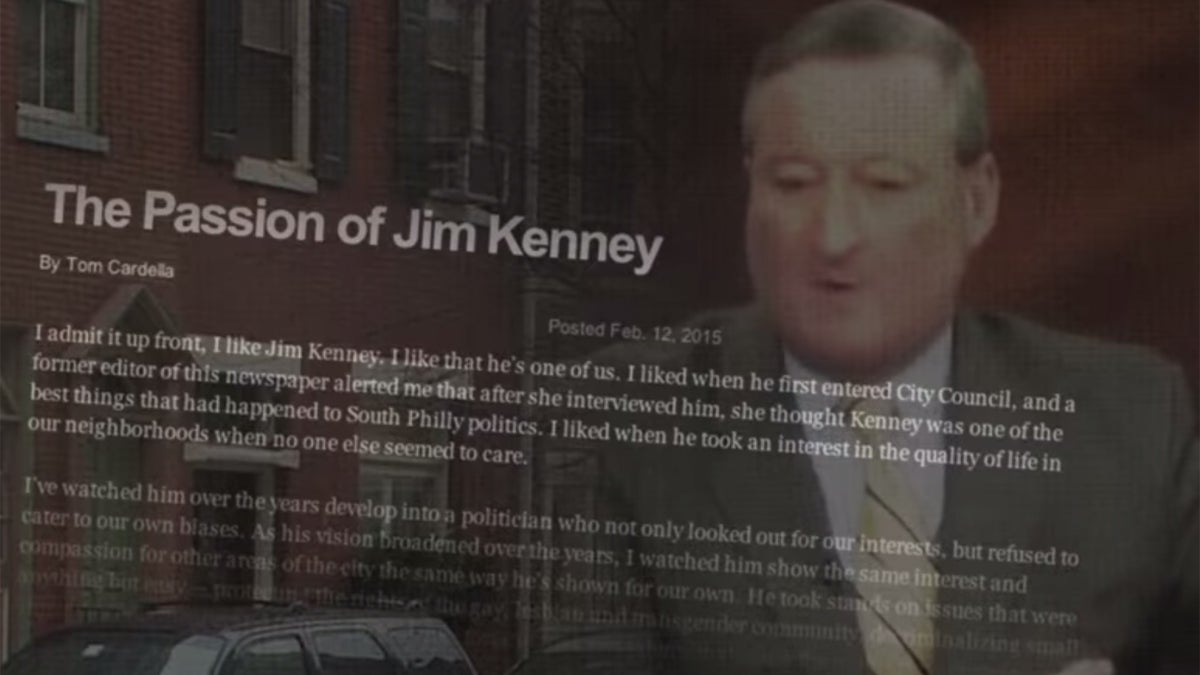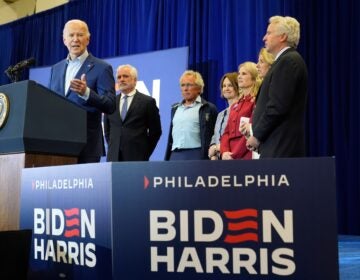Even the best of political reforms sits on shaky ground
Listen
This Jim Kenney campaign ad was financed not by a candidate, but by "outside money."
The ants will always get back into the kitchen.
That’s the sad truth about attempts to limit the corrupting effect that money has on the conduct of democracy.
Try as you might, you cannot devise perfect, permanent reforms. It’s a continuous struggle, full of small advances and retreats.
For example, believe it or not, Philadelphia has some of the strictest campaign finance laws in the land. They led to a great campaign in 2007, and set up Michael Nutter to run a pretty darn ethical administration.
Now, cue in the “harbinger of doom” music. The backsliding has begun. Last week saw the first ad of this mayoral campaign to hit local TV. It was financed not by a candidate, but by “outside money” — one of those shadowy, “independent” political outfits that court decisions have enabled to operate outside the bounds of the city law.
You see, it’s even harder to keep the ants out of the kitchen when the nation’s highest court seems to want to usher them in. In a series of rulings, the U.S. Supreme Court has dismantled much of the basis for laws aimed at draining the political swamp.
You can sum up the drift of the Roberts Court’s rulings this way:
Money is a form of free speech. This phrase is a crude summary of a famous 1975 case, Buckely vs. Valeo. It’s the rare precedent from that era that John Roberts actually seems to revere.
The Roberts Court operates from a narrow definition of how money corrupts politics. It sees the problem strictly as the direct, provable quid pro quo action. In other words, the kind of blatant bribery that another crop of Philly lawmakers got accused of last week.
Of course, that “simple” corruption is far from the only, or even the most devastating, way big money can distort and undermine democracy. Corruption can take subtler forms, including passing laws that make undemocratic behavior legal.
Two legitimate schools of thought exist on how to address this problem.
The libertarian school says giving limits are violations of liberty and doomed to fail. To this school, the one legitimate goal for any rules is to provide transparency about who’s giving to whom.
The progressive school, meanwhile, stays devoted to the patient, vigilant work of trying to caulk up every crack the ants might use.
Next month, April 8 at Beth Sholom Synagogue in Elkins Park, the annual Bernard Wolfman Civil Discourse Forum will try to illuminate this age-old dispute in a fresh way. Thinkers from the Cato Institute (libertarian) and Public Citizen (progressive) will face off; I’ll be privileged to moderate this discussion between John Samples of Cato and Craig Holman of Public Citizen.
Hope to see you there. To sign up to attend. click here.
An earlier version of this commentary had an error in the date for the Bernard Wolfman Civil Discourse Forum.
WHYY is your source for fact-based, in-depth journalism and information. As a nonprofit organization, we rely on financial support from readers like you. Please give today.




